Top 10 Baby Sleep Tips + 10 Sleep Facts for Parents
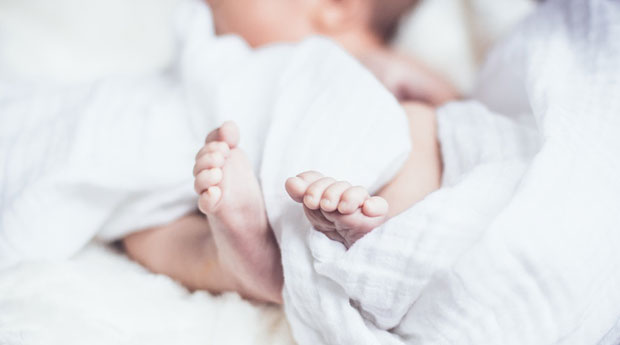
Top 10 Baby Sleep Tips + 10 Sleep Facts for Parents
This Sunday, the clocks will change making Saturday night the longest night shift of the year for parents on night-feed, nappy changing and child consoling duties!
ALDI Mamia will be there to help though, with a special team — the Mamia Sleep Squad — staying up all night to support parents during this testing time. The Mamia Sleep Squad will be there if you need sleep tips, want to share your stories or are simply looking for a friendly shoulder to tweet on. Use the #MamiaNightFeed hashtag and follow @AldiUK on Twitter and join in if you find yourself awake in the night or the early hours of Sunday the 30th. Plus, one lucky parent who tweets during the night will win a year’s supply of nappies!
Thank you to ALDI for sharing these tips to help you survive night time with your new baby. The tips are by Sarah Beeson MBE (former health visitor and parenting author) with me.
Top 10 Baby Sleep Tips
- Try making a Shush, shush, shush sound
Making gentle, rhythmic shushing sounds will often help babies to relax. It stimulates the noises of blood circulating heard in the womb. From gently behind the ear, not into the ear, make low-level rhythmic shushing noises for a couple of minutes to calm your Little One.
- Stroke your baby’s forehead and temple, the back of the head or the bridge of the nose
Some babies like gentle stroking. This rhythmic motion and the warmth of your touch can be very soothing and help them get off to sleep. To stroke the bridge of their nose take your index finger and softly stroke it from your baby’s forehead to the middle of the nose. This motion will encourage their eyes to close.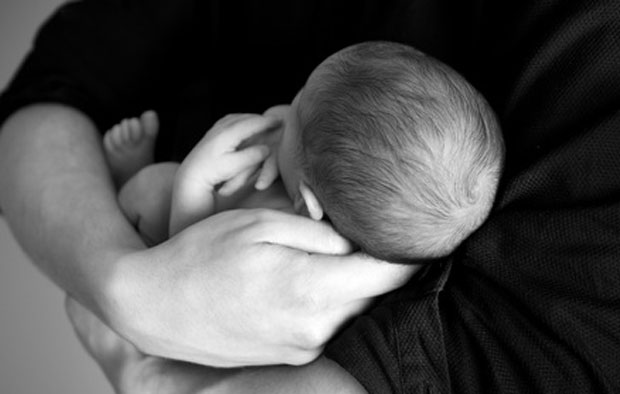
- Take a deep breath and sway to calm your baby
Holding your baby against your chest with their head on your shoulder, gently sway and take a deep breath, filling your chest and releasing the air out fully drawing in your abdomen. Repeat at least ten times dropping your shoulders down and away from your ears, closing your eyes if you want to. As your body begins to relax so will your baby.
- Tilt your baby’s mattress
Though you should never use a pillow you can put a pillow, folded sheet, blanket or muslin underneath the upper end of your baby’s mattress in their crib, cot or pram. This slightly tilts the mattress and raises the level of the baby’s head which helps them to breathe more easily and calmly.
- Darken the room
A room with lights turned down low and the curtains drawn creates a calmer environment to help your baby drift off to sleep.
- Place a hand on your baby’s tummy or rock the crib
If it is night-time and your baby is in a crib next to your bed you can place a hand on their tummy so they have your touch and know you are there. You can gently rock them to sleep with the soft sound of your voice and/or soothing music.

- Put the hoover or hairdryer on
Some babies can drift off rather quickly to the sounds of the hoover or hairdryer. It blocks out other distracting sounds and gives them a mono sound to focus on. Many parents have CDs or Apps to replicate white noise and heartbeat sounds.
- Place your baby’s hands on their chest
Some babies will be calmed if they wake from sleep if you gently put both their hands on their chest and hold them in place with your hands gently on top of theirs.
- Use a rocking chair
Cuddling up with your baby in a rocking chair is one of the most tried and tested methods of getting them off to sleep. The combination of your warmth, touch, breathing and heartbeat combined with the gentle rocking motion is a match made in heaven.
- Take your time to lower your baby gently into their cot
Wait 10-15 minutes before transferring your baby to their cot once they are asleep. Lower them down slowly and gently whilst you exhale a long breath to keep you relaxed and steady. It is a good habit to put your baby down to sleep most of the time.
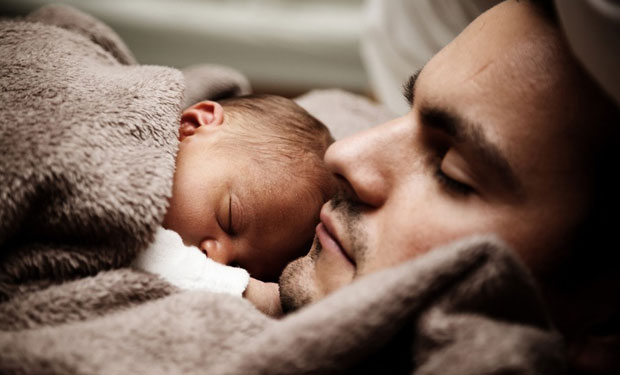
10 Sleep Facts for Parents
- Babies grow in their sleep
Your baby is growing whilst they slumber – it is their time to rest and recuperate and is vital for development so your baby can reach their optimum growth.
- Lullabies psychologically help a baby to go to sleep
Babies respond positively to calm and harmonious voices that they recognise from life in the womb. Your voice is familiar and relaxing and gentle tunes will help to make your Little One to feel safe and secure, helping them to drift off into a peaceful sleep.
- It is normal for newborn babies to wake up at night
A newborn baby doesn’t have a concept of night and day, only the inner clock that demands feeding. Frequent feeding during the day often means your Little One will wake less frequently in the night.
- How babies get off to sleep changes as they grow
You’ll find different techniques work for different times of the day and locations. As your Little One grows so will their preference for how they like to fall asleep; when they’re newborn it is often only a feed and a cuddle that will get them off, but as they get older a story and some smoothing music may be more likely to do the trick.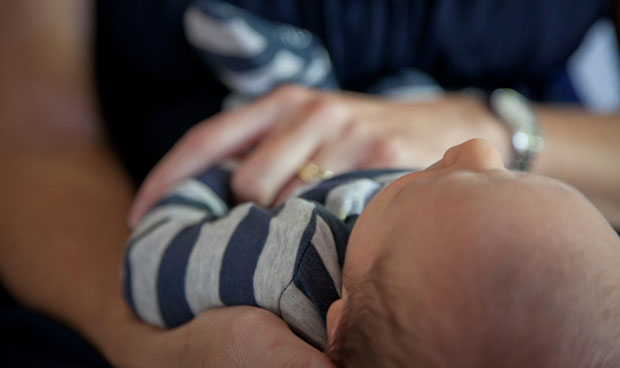
- Babies remember sounds from the womb
If you sang and played music a lot while you were pregnant it’s quite likely they’ll like those tunes best of all. When Neighbours was at its peak on TV, I visited many pregnant women who put their feet up and relaxed during the show. When their babies heard the theme tune they’d stop crying and calm to the familiar song.
- Your baby’s stomach is only the size of their clenched fist
A newborn baby usually feeds every 2-3 hours and sometimes even more frequently in the first few weeks. It usually takes a little trial and error to settle and discover your babies feeding and sleeping patterns which shift constantly throughout childhood.
- You can wake a baby who’s slept more than 4 hours in the day
Gently encourage your baby to wake up by popping their legs out of their clothing and removing blankets so they can feel the cool air on their little feet and legs. Talking softly to them and turning up the lights will also help your baby wake up gently and gradually.
- Babies dream of milk
You may notice your baby’s rapid eye movement through closed eyes. This is normal sleep and goes into rapid eye movement (REM). You may notice your baby making sucking noises in their sleep – I guess they’re dreaming about their next feed.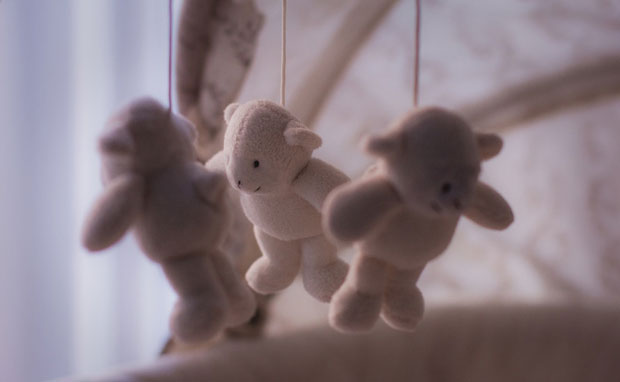
- Reduce the risks to your baby by practising safe sleep
Babies should always sleep on their backs with their feet touching the bottom end of the cot. A cover of lightweight blankets or sheets should be no higher than their shoulders and tuck them in securely so the covers can’t slip over their head. Never use a duvet, quilt or pillow and adjust covers and clothing according to temperature. Recommended room temperature is 18°C (65°F).
- Always be in earshot while your baby sleeps
It is recommended that your baby sleeps in the same room as you. If they aren’t in the same room always be in ear shot and use a baby monitor so you can swiftly respond to your baby’s needs.
- Be smoke free during pregnancy and after birth
Smoking greatly increases the chance of Sudden Infant Death syndrome. Your baby can be affected by either you or your partner smoking. Avoid being in a smoky environment or a room where someone has smoked.
Contains a sponsored link.




